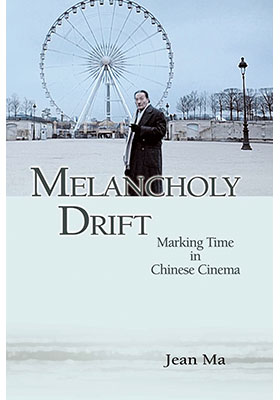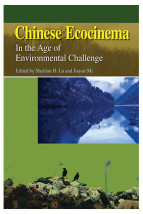Melancholy Drift
Marking Time in Chinese Cinema
(憂鬱的漂流:現代中國電影)
ISBN : 978-988-8028-05-4
June 2010
212 pages, 6″ x 9″, 44 b&w illus.
Ebooks
Also Available on
Ma offers an innovative study of three provocative Chinese directors: Wong Kar-wai, Hou Hsiao-hsien, and Tsai Ming-liang. Focusing on the highly stylized and nonlinear configurations of time in each director’s films, she argues that these directors have brought new global respect for Chinese cinema in amplifying motifs of loss, nostalgia, haunting, absence and ephemeral poetics. Hou, Tsai, and Wong all insist on the significance of being out of time, not merely out of place, as a condition of global modernity. Ma argues that their films collectively foreground the central place of contemporary Chinese films in a transnational culture of memory, characterized by a distinctive melancholy that highlights the difficulty of binding together past and present into a meaningful narrative.
“Melancholy Drift in fact drifts scarcely at all; rather it rides the films of three Chinese auteurs right into the heart of its subject, the mismatch between private feeling and collective history. Nor is the book melancholy, for these crucial films, set carefully beside one another, begin to pulse anew under the deft touch of Jean Ma’s analyses. Drawing on a deep reservoir of historical and critical knowledge, she helps us hear these films speak of our times, then speak of time itself and of its dislocations. Melancholy Drift reminds us that films can reach such depths, and that cinema studies at its best can travel with them.” —Dudley Andrew, Yale University
“From Wong Kar-wai’s stop-motion techniques to Hou Hsiao-hsien’s command of the long take and Tsai Ming-liang’s suspension of narrative, the poetry of time has been crucial to the achievements of contemporary Chinese cinema, just as it is central to contemporary film theory. This has been clear for a long time. But Jean Ma’s Melancholy Drift is the first sustained treatment of the topic.” —Chris Berry, University of London
“Theoretically sophisticated and elegantly written, Melancholy Drift elucidates the subject of cinematic time in its various configurations: as a response to historical ruptures and political upheavals, as representational politics, and as a reinvention of the art cinema. This book is a timely demonstration of the key roles played by Chinese auteurs in shaping the new face of world cinema today and an important contribution to scholarship both within and beyond the field of transnational Chinese cinemas.” —Song Hwee Lim, University of Exeter






